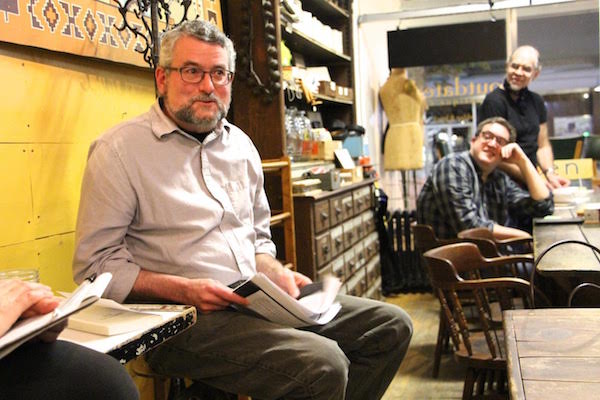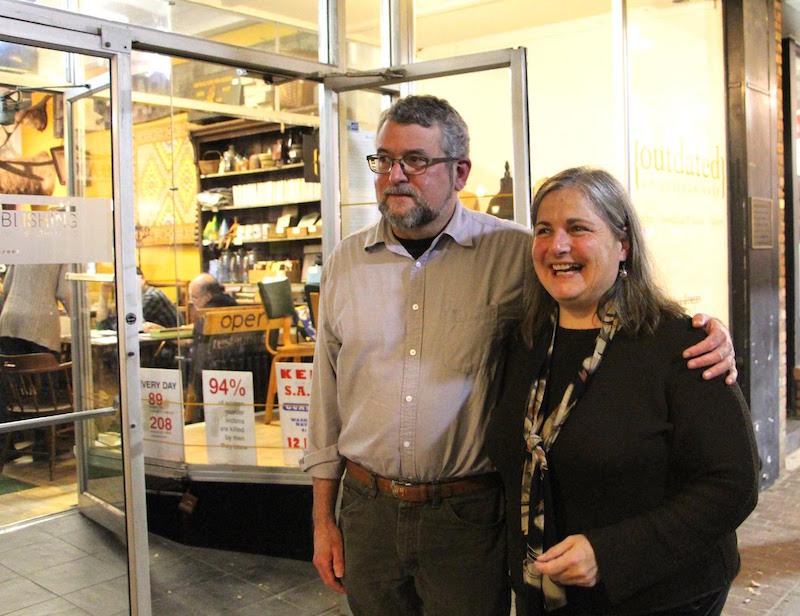WORD CAFE EVENT ARCHIVE
ELISA ALBERT 11/12/15 – “FEARLESS FICTION”
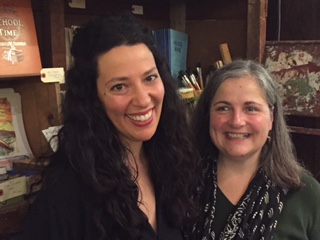 Elisa Albert read the opening of her extraordinary novel After Birth. Nina read a selection of phrases culled from rave reviews–blistering; merciless; edgy; ferociously funny, confrontational and dark; scathing; caustic; a romp through dangerous waters; scaldingly and exhilaratingly honest–including Elisa’s favorite quote by Shalom Auslander: “Bukowski wrote that he preferred people who scream when they burn, and nobody I know burns, or screams, like Elisa Albert. Dark, wise, funny–she is Bukowski with a vagina and a motherfucker of a hangover.”
Elisa Albert read the opening of her extraordinary novel After Birth. Nina read a selection of phrases culled from rave reviews–blistering; merciless; edgy; ferociously funny, confrontational and dark; scathing; caustic; a romp through dangerous waters; scaldingly and exhilaratingly honest–including Elisa’s favorite quote by Shalom Auslander: “Bukowski wrote that he preferred people who scream when they burn, and nobody I know burns, or screams, like Elisa Albert. Dark, wise, funny–she is Bukowski with a vagina and a motherfucker of a hangover.”
Well, welcome!
Asked how it feels to be hailed as a literary Bad Girl, Elisa noted that she spends more time talking about that at author events than her characters and story. She attributes it to societal discomfort with anger and truth-telling, with women not toeing the line. “I get both ends of the spectrum–people crying and thanking me for writing this, and people who are furious and offended.” She calls After Birth “a female war novel, with the women in the trenches, and the men left at home.” Readers often want to know “how autobiographical” it is, and we talked about the double bind of assumptions that novels are thinly disguised autobiography, and memoirs are fictionalized. So you might as well write what you want. “If you’re invested in people liking it, or liking you, you’re in a bad place,” Elisa says. Writing is “between you and yourself. If you don’t tell your truth, what’s the point?”
For Elisa, that’s “subjects that come to me, whatever I’m obsessed with.” After she gave birth, it was the abrupt, falling-off-a-cliff life change and isolation of new motherhood. She noted that, as a culture, we prefer to avoid the messy beginnings and ends of lives. When her baby was born (as when her older brother died), she lost some friends, while others–including some surprises–“came and sat with me.” That phenomenon, the politics of birth, and women’s friendships became fertile subject matter, “a giant ball of clay. What can be done with this?”
Elisa talked about the importance of finding writers who spoke to her “without bullshit” when she was young: Maya Angelou, Ani DiFranco, Susanna Kaysen’s Girl, Interrupted, and more recently Merritt Tierce’s Love Me Back.
THE EXERCISES:
Elisa asked participants to recall “the last time you totally lost your shit, an illogical, outsize, not admirable reaction” and write a first-person piece (fictional or not) in that voice. Don’t smooth it out to get to a place of calm acceptance, just let it rip.
Nina asked participants to write about being stuck in a place with something you fear, physically or emotionally.
Bonus quote from Abigail Thomas, speaking with Kim Wozencraft and Nina at SUNY Ulster’s writing panel this Tuesday: “Don’t try to put the whole Thanksgiving dinner on a slice of pizza.”
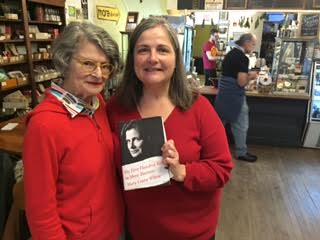 The divine Mary Louise Wilson treated us to a spectacular reading from her new memoir
The divine Mary Louise Wilson treated us to a spectacular reading from her new memoir 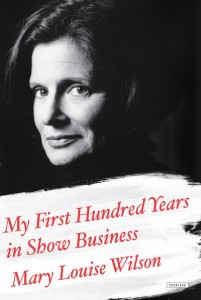
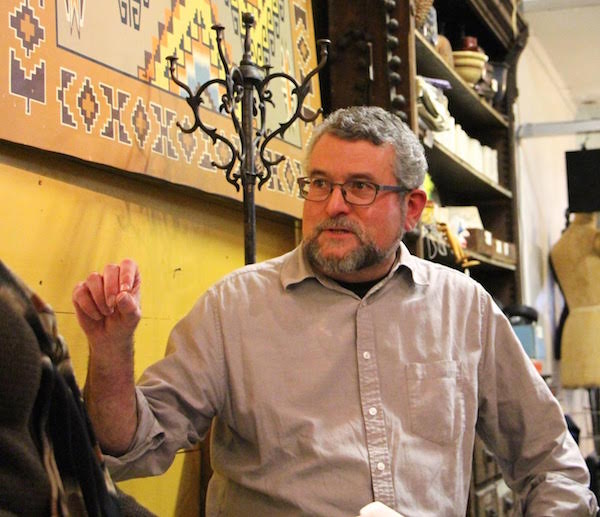 Novelist and Vassar professor Paul Russell led a terrific discussion of the many roles of past and present in fiction. His just-released novel
Novelist and Vassar professor Paul Russell led a terrific discussion of the many roles of past and present in fiction. His just-released novel 